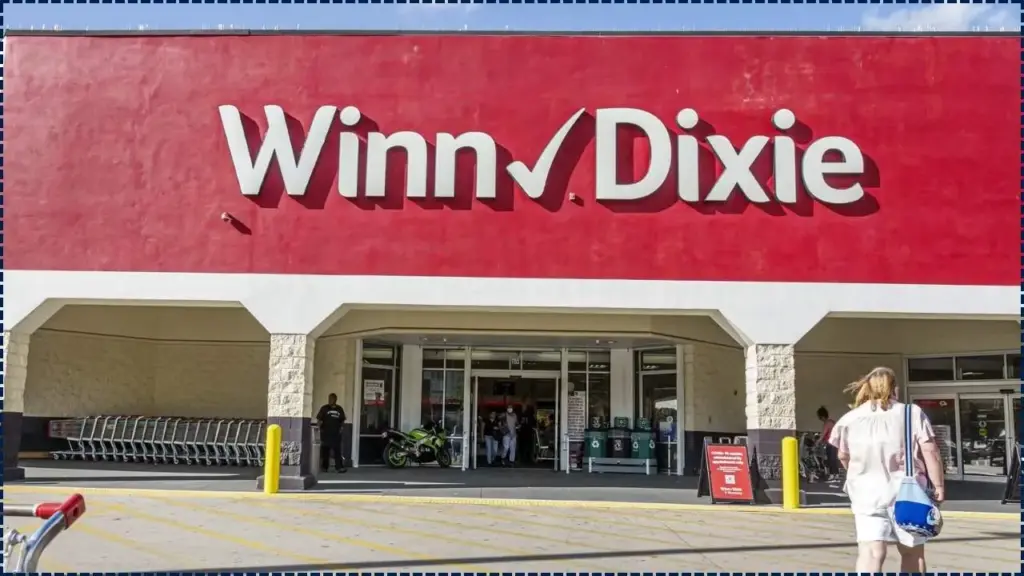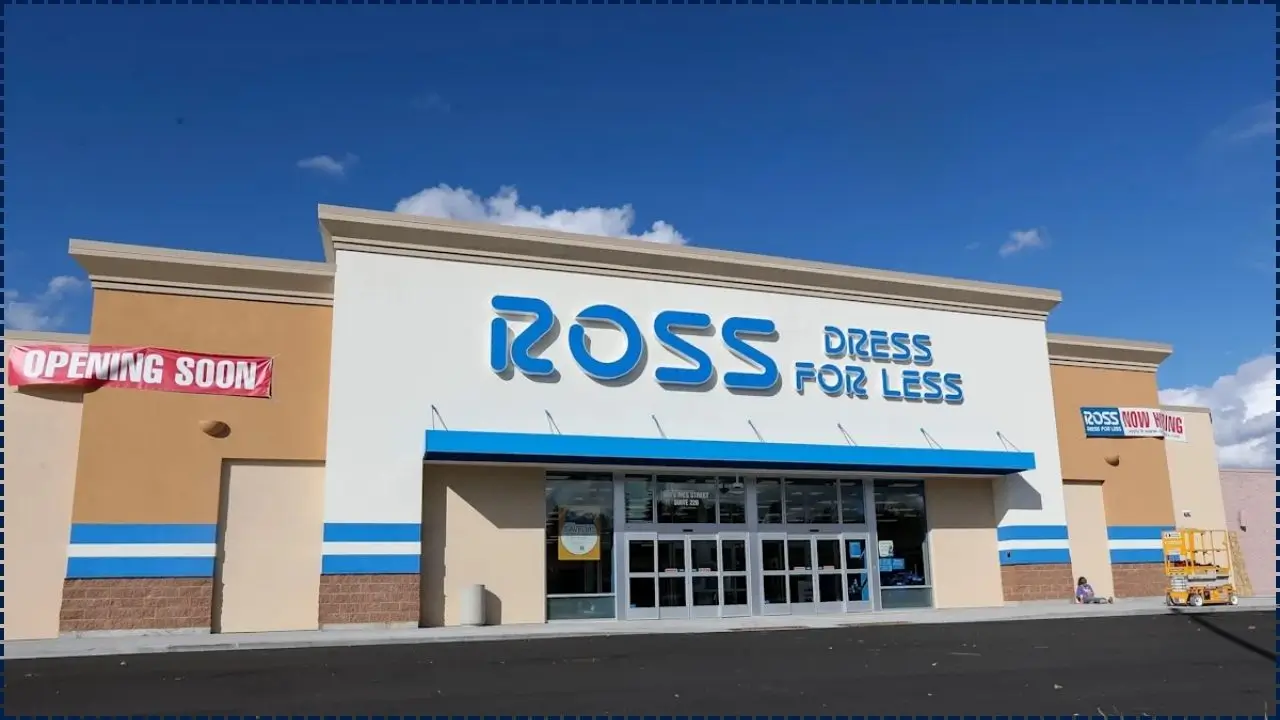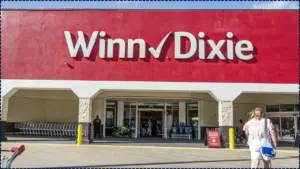In a significant shift for one of the South’s most iconic grocery chains, Winn-Dixie has announced the closure of more than 30 stores across Alabama, Louisiana, Mississippi, and Georgia. The closures, set to unfold by early 2026, are part of a wider restructuring strategy by Southeastern Grocers (SEG), the company behind Winn-Dixie.

The closures are linked to an ongoing rebranding campaign and operational refocus primarily aimed at strengthening its presence in Florida and southern Georgia, where the brand has deep roots.
Table of Contents
Winn-Dixie Announces Major Store Closures
According to the company’s press release, the store closures are a strategic move to streamline its operations and make way for a new phase in the brand’s history. Southeastern Grocers (SEG) plans to divest over 30 locations that have not met profitability targets or align with the company’s future vision.
“While these closures will undoubtedly affect local communities, our goal is to ensure the long-term success of the brand by focusing on areas where we can maximize growth and customer engagement,” said Anthony Hucker, CEO of Southeastern Grocers, in a statement.
The closures will impact stores in major cities like New Orleans, Birmingham, and Mobile, with many locations expected to shut down by the end of 2025. SEG will also sell several properties to competitors, with some stores potentially being rebranded under other grocery chains. These decisions come after a broader wave of store divestitures and a notable shift in leadership and ownership.
The Bigger Picture: Why is Winn-Dixie Closing Stores?
This restructuring is part of Southeastern Grocers’ effort to realign its operations following a tumultuous period in the grocery retail landscape. In 2023, Aldi acquired Winn-Dixie and Harveys Supermarket locations, a move that was part of the larger retail strategy to solidify Aldi’s foothold in the Southern U.S. However, in February 2025, a group of private investors led by Hucker repurchased approximately 170 stores from Aldi, further fueling the need for this restructuring.
Southeastern Grocers, which has been in business for over 100 years, is rebranding under the name “The Winn-Dixie Company” in early 2026 as part of its 100th anniversary celebration. The company will continue its operations primarily in Florida and Georgia, where the brand has historically performed well.
Southeastern Grocers and Aldi: A Complex Relationship
The store closures are also a reflection of the shifting dynamics between Southeastern Grocers and Aldi. Following Aldi’s acquisition of Winn-Dixie and Harveys Supermarket in 2023, there was significant speculation regarding the future of these brands. Aldi retained roughly 220 locations, with plans to rebrand them into its own stores by 2027. Meanwhile, Southeastern Grocers repurchased the remaining 170 locations to return control of the brand to its original owners.
This series of acquisitions, repurchases, and closures highlights the growing competition and consolidation in the grocery industry. Experts argue that Aldi’s aggressive expansion in the U.S. market, coupled with the challenges of the pandemic and inflation, has forced many traditional grocery chains, like Winn-Dixie, to rethink their business models.
The Impact on Communities and Consumers
The announced closures will undoubtedly have ripple effects on local communities, especially in smaller markets where Winn-Dixie stores have been long-standing fixtures. For many customers, these closures may leave gaps in their shopping routines and may require them to drive longer distances to find alternative grocery options.
For employees, the closures mean job losses. While Southeastern Grocers has committed to assisting affected workers with transitions to new roles, many employees are facing an uncertain future as the company adjusts its workforce to match the new strategic direction.
“The reality is, it’s a tough time for retail workers who depend on the stability of their stores,” said Heather Lawrence, a labor expert at the University of Florida. “Companies need to ensure they’re treating their employees with respect during these transitions.”
Consumer Reactions: A Mixed Bag of Sentiments
Many consumers who rely on Winn-Dixie for their everyday shopping are expressing concerns over the store closures. Julie Thompson, a lifelong shopper at the Winn-Dixie store in Baton Rouge, Louisiana, said, “It’s going to be hard. I’ve been coming here for years, and now I’ll have to find a new place to shop.”
Conversely, some shoppers are supportive of the company’s efforts to streamline operations and refocus on core markets. “If this helps Winn-Dixie compete better, then it’s worth it in the long run,” said Tommy Reed, a frequent shopper at a Jacksonville, Florida, location.
Winn-Dixie’s Legacy and the Road Ahead
Despite the closures, Southeastern Grocers remains committed to its brand and legacy. As part of the rebranding initiative, the company has already started acquiring several smaller grocery chains to bolster its operations. For instance, in North Florida, three Hitchcock’s Markets will be rebranded and converted into Winn-Dixie stores. These acquisitions signal a return to the company’s roots, with a focus on offering high-quality, affordable groceries to communities in Florida and Georgia.
Retail Market Trends: The Broader Context
The grocery retail market has undergone significant transformation in recent years. The rise of budget chains like Aldi and the steady growth of Walmart and Costco have made it increasingly difficult for traditional players like Winn-Dixie to maintain their market share. This shift in consumer preferences, coupled with economic pressures like rising inflation and supply chain disruptions, has forced many grocery chains to re-evaluate their strategies.
Retail experts have pointed out that the focus is shifting toward convenience and value, with consumers increasingly seeking affordable options. Companies like Aldi, with their cost-effective business models, have successfully capitalized on these trends, putting pressure on legacy chains to innovate or risk losing relevance.
The Future of the Grocery Sector: What’s Next?
Looking ahead, experts are watching the evolution of grocery shopping closely. Emily Schwartz, a retail analyst at the Gartner Group, explained, “The grocery sector will continue to evolve toward a combination of cost efficiency and digital integration. Companies that can leverage technology and adapt to shifting consumer habits will likely thrive.”
Southeastern Grocers’ focus on its core regions and the rebranding of its flagship Winn-Dixie brand is an attempt to stay relevant in this changing environment. However, only time will tell whether this strategy will prove successful.
A New Era for Winn-Dixie
The latest closures represent a critical juncture for Winn-Dixie, one of the region’s oldest grocery chains. While the changes may be seen as a retreat from some markets, the rebranding efforts and focus on Florida and southern Georgia suggest that the company is far from finished.
Southeastern Grocers’ goal is clear: by refocusing operations and investing in key markets, the company aims to strengthen the brand’s reputation and increase its competitive edge. The major store closures are part of this vision, allowing the company to hone in on areas that offer the most potential for long-term success.
With Aldi’s growing dominance and consumer shopping habits changing, Winn-Dixie faces significant challenges ahead. However, the strategic restructuring and the 100th-anniversary rebranding may offer a renewed opportunity for the chain to reassert itself as a leader in Southern grocery retail.
FAQ About Winn-Dixie Announces Major Store Closures
Q: When will the first stores be closed?
A: The closures are expected to begin by the end of 2025, with the full closure process likely to extend into early 2026.
Q: What will happen to the employees of the closed stores?
A: Southeastern Grocers has pledged to help employees find new job opportunities, but the exact details of how this will be managed remain unclear.
Q: Is Aldi still involved in the future of Winn-Dixie?
A: Aldi retained approximately 220 Winn-Dixie locations in 2023 and plans to convert them into Aldi stores by 2027. Southeastern Grocers has repurchased 170 locations and is focusing on its original operations in Florida and Georgia.
















